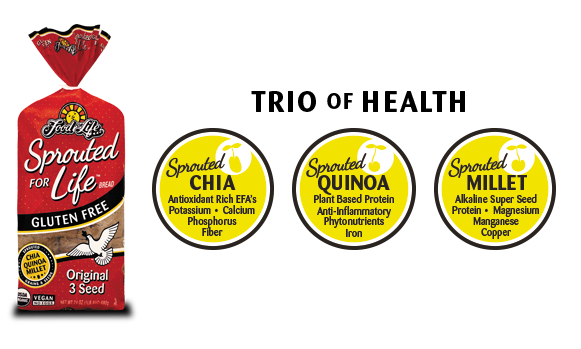
What is a Gluten Free Diet?
Gluten free diets have become wildly popular. Manufacturers noticed this rising fad which resulted in gluten free products being rushed to many stores throughout the nation. But what is a gluten free diet? Gluten is a form of protein found in all forms of wheat (including durum, semolina, spelt, kamut, einkorn and faro) and related grains rye, barley and triticale. Gluten is what makes dough rise and stay elastic. Because it is high in protein and iron, gluten is sometimes added to other foods to increase their protein content. It is often used to make seitan, a meat alternative used by vegans and vegetarians to make faux chicken, faux beef, and other vegetarian foods. It does contain some other nutrients, including calcium, and carbohydrates to help provide energy.
A gluten free diet is one that consumes foods absent of gluten or derivatives of those ingredients. Gluten free diets are a choice for some but essential for individuals living with celiac disease, an autoimmune disorder where the ingestion of gluten leads to damage in the small intestine.
Gluten Free Diet for Gluten Sensitivity
Not everyone who eats a gluten free diet has been officially diagnosed with an autoimmune disease or a disorder for digesting gluten. Even though only an estimated 1% of Americans have tested positive to have Celiac disease, there are many people who notice they have gluten sensitivity. Gluten sensitivity is a condition that occurs in individuals who have difficulty digesting gluten or are unable to tolerate gluten. They experience symptoms similar to those associated with celiac disease such as extreme gassiness, constipation, nausea, and diarrhea. Though the diagnostic tests for celiac disease or food allergies are negative in such individuals, they still find advantages of a gluten free diet.
Gluten Free Diet for Those without Gluten Sensitivity
It is not harmful to go on a gluten free diet if you do not have celiac disease or any other gluten sensitivities, as there are other reasons to adopt a gluten free lifestyle. Some people choose to cut out gluten, or all grains, for the purpose of weight loss. Although this will assist in cutting the carbohydrate intake, some grains (gluten free or not) should be included as a part of a balanced diet. Because avoiding gluten means avoiding a high protein source, a gluten free-diet should be based primarily on naturally gluten free foods with a good balance of micro and macro nutrients found in meat, fish, eggs, legumes, nuts, fruits, vegetables, potatoes, rice, and maize.
There are healthy alternatives to ingredients containing gluten, such as quinoa, amaranth, and buckwheat, which have high biological and nutritional value. Food For Life offers gluten free breads made from sprouted quinoa, chia seed and millet. All gluten free products are baked without casein, egg, or dairy products. Food For Life’s sprouted grain and slow baking process preserves the vitamins and minerals, giving you the ultimate nutritional value possible.
Find a location near you that sells Food for Life products and start enjoying your gluten free diet today!

